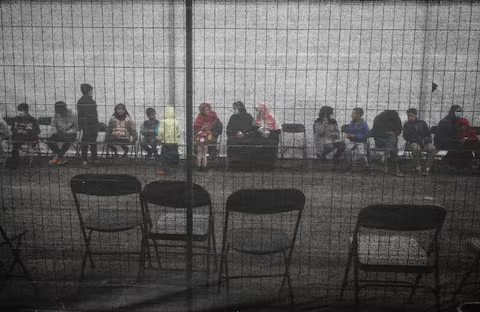Trump Travel Ban 2025: On June 5, 2025, President Donald Trump announced a Trump travel ban 2025, barring entry from 12 countries. Seven others face visa restrictions. The White House cited national security concerns. The order takes effect on June 9, 2025. Trump linked the ban to recent attacks and poor vetting systems.
This move revives his earlier controversial travel restrictions from 2017.
Also Read | US Backs Plan to Integrate Foreign Fighters in the Syrian Army, Says Trump’s Envoy
Trump Travel Ban 2025: Insights
- 12 countries, including Iran, Somalia, and Yemen, face a full travel ban.
- 7 more nations get visa restrictions, like Cuba and Venezuela.
- Existing visas remain valid, but new ones face stricter rules.
- Harvard University targeted student visa suspensions.
- Similar to 2017’s “Muslim ban”, it has expanded to more nations.
Background
In 2017, Trump banned travellers from seven Muslim-majority countries. Courts blocked it at first. Later, the Supreme Court allowed a revised version. Critics called it discriminatory. Supporters said it improved security. Now, the Trump travel ban 2025 adds more nations and new rules. The White House claims better vetting is needed to prevent threats.
Main Event
The Trump travel ban 2025 stops entry from Afghanistan, Chad, Congo, Eritrea, Haiti, Iran, Libya, Myanmar, Somalia, Sudan, and Yemen. Burundi, Cuba, Laos, and others face visa limits.
Trump said, “I must protect America’s security.” He referenced an attack in Colorado as proof of weak vetting. The order starts on June 9, 2025. Existing visas stay valid, but new applicants face hurdles.
Additionally, foreign Harvard students may lose their visas. Trump accused Harvard of “radicalism” and foreign influence. The State Department will review current student visas.
Harvard called this retaliation. Last month, the U.S. cut funding and revoked foreign student rights. A court blocked part of this, but Trump’s new order uses different legal powers.

Afghan refugees line up outside a donation center at Liberty Village on Joint Base McGuire-Dix-Lakehurst in New Jersey on December 2, 2021.
Photo Credits: REUTERS.
Implications
Travelers from banned nations cannot enter the U.S. Families may get separated. Students and workers face uncertainty. Businesses may lose skilled workers. Universities like Harvard could see fewer international students.
Diplomatically, affected countries may retaliate with their bans. Critics say the Trump travel ban 2025 fuels discrimination, while supporters argue it keeps America safe.
12 countries which have been permanently banned are as follows:
- Afghanistan
- Myanmar
- Chad
- Republic of the Congo
- Eritrea
- Equatorial Guinea
- Haiti
- Yemen
- Libya
- Sudan
- Somalia
- Iran
7 countries which have been partially restricted from traveling in the US:
- Burundi
- Cuba
- Laos
- Sierra Leone
- Togo
- Turkmenistan
- Venezuela
Conclusion
The Trump travel ban 2025 revives past debates on security vs. discrimination. Legal challenges are likely. Future policies may depend on court rulings and elections. For now, travelers and students must navigate stricter rules.



